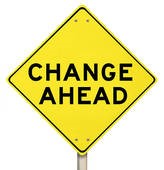Getting help for any addiction is no easy task, and the first year of recovery can be challenging to say the least. Knowing what to expect the first year of recovery can help alleviate some of the stress that can accompany the vast changes and the unknowns. Recovery progress will be different for everyone, so try not to compare yourself to anyone else’s recovery.
Each person’s recovery will be different, but there are some similarities that will most likely occur with all in recovery.
Here are some things to expect during your first year of recovery:
- Depression – This usually occurs early in the recovery phase as one “leaves and grieves” the past and now has to deal with emotions for the first time. Feel-good chemicals in the brain are also trying to balance back to normal as a result of being depleted during drug and alcohol abuse. Exercise, taking vitamins, journaling, and spending time with God can help reduce the early symptoms of depression. The depression in early recovery should subside in a few weeks, with some periods of “feeling blue,” as one continues to work on recovery. Post-acute withdrawal symptoms can last six months to two years into recovery as your brain continues to repair itself from the damage that addiction has caused. Post-acute withdrawal symptoms can include difficulty in thinking clearly and managing emotions. It takes time for memory and cognitive function to come back, and it is common to experience some forgetfulness or problems with memory.
- Disorientation – The first several months of recovery you may feel disoriented and confused as new ways of life are now becoming a part of your life. You may feel unsure of what to do and even how to do something, or even how you can get through the day. Many changes will happen during the first year of recovery such as job change, changes in friendships and changes in your schedule to allow for recovery meetings and church. These changes can seem a bit confusing at first and maybe unnatural, but keep moving forward and the changes will eventually become a normal part of life for you. A word of caution: if you resist the changes that need to be made in early recovery you can greatly increase your chances of a relapse or “getting stuck,” and not be able to move forward.
- Dealing with overconfidence – Usually after six months into recovery, if things have gone smoothly for the most part, it may be likely that you will experience overconfidence. For example, you may feel now that you got your addiction licked, you can go out with your friends to the bar. Not putting yourself in tempting situations is the best way to overcome addictions.
- Learning a new way of life – About nine months to a year into recovery you will know the danger signs and the people, places and things to avoid. You will know when you are feeling overwhelmed and stressed and when you need to take a breather. You will most likely have made new friends that are healthy for you and have developed hobbies and interest that do not revolve around addiction. Here again, overconfidence may creep in during these months, especially if you have been doing well with maintaining your sobriety. Most likely the amount of recovery meetings that you were in will be greatly reduced or you may have completed the program that you were in, and there could be an overconfidence once again to believe, “I got a handle on this and can do whatever I want to now.” This is a lie straight from the enemy. A lifestyle change will need to be made if one wants to stay free from addiction.
- Relapse warnings – relapse, if it does occur, would most likely happen the first 90 days of recovery. This is because of the huge transition and changes that you are making to your life and the uncomfortableness of this stage. The good news is that the longer you are clean and sober, the less likely of a major relapse. Usually after the first year the chances of relapse are greatly reduced. Become aware of relapse warning signs: anger, negativity, stress, overconfidence, and putting yourself in risky situations.
- Dealing with emotions – for the first time since getting sober you will be dealing with emotions, and learning to run to Jesus instead of a bottle or a pill to numb the pain. At the beginning you may feel like running and escaping from your emotions, but that is because you have never stopped to deal with them. Learning to properly deal with emotions will be a huge undertaking your first year in recovery. Dealing with emotions can feel scary and raw at first, but give it some time and you will begin to know how to handle your emotions in a healthier way.
- Cravings and urges – It is common for those early in recovery to experience cravings and urges. Try not to become too distracted by them. Immediately stop and pray and ask Jesus to help you resist the urges and to take away your cravings. The urges and craving will go away; get up and do something else until they pass. Cravings usually last for 20 minutes, so get up and do something else to get your mind refocused. Some cravings will come out of the blue, so prepare yourself ahead of time to deal with these.
- Routine and daily schedule – during your first year of recovery having a routine and schedule is helpful in adjusting to your life in recovery. DO NOT make any major life changes your first year of recovery. Keep your schedule as simple as possible. Eliminate stress-inducing activities in your schedule.
There is a lot of work involved the first year of recovery, but it is also a chance to start fresh. You are not alone in your recovery, you have a helper–Jesus Christ and He is the ultimate source of healing. Trust God to get you through your first year of recovery and thereafter.
And call on me in the day of trouble; I will deliver you, and you will honor me. Psalm 50:15
If you are, or have been in recovery, what tips can you give to someone in their first year of recovery?
 The Bottom Line, Ministries Christian News, Articles, & Poetry
The Bottom Line, Ministries Christian News, Articles, & Poetry 




